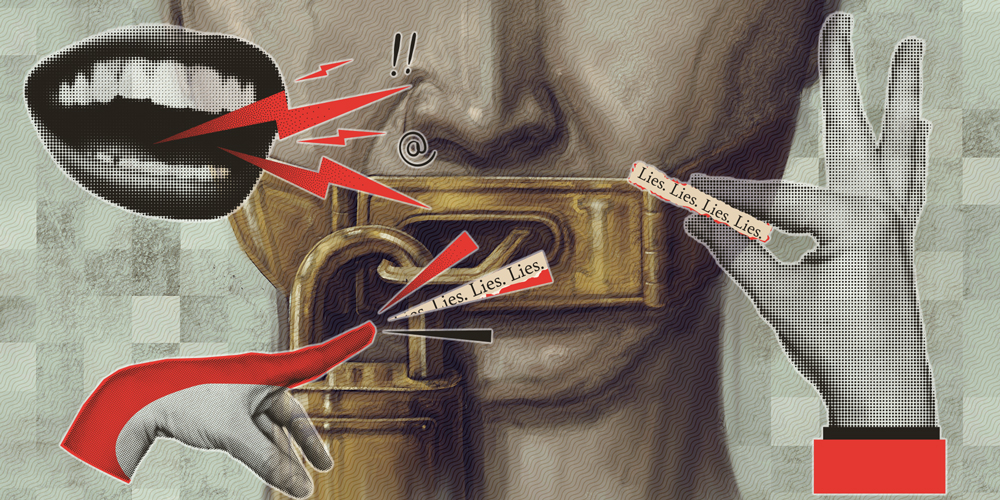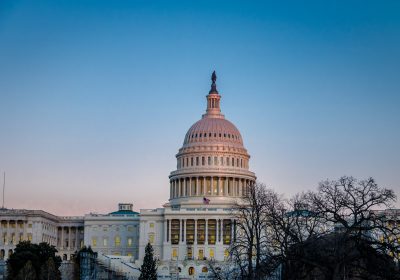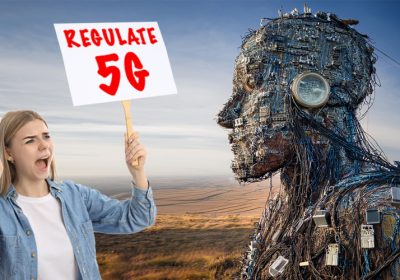Exploring the impact of scientific and medical AI-informed censorship and the acute need for transparency.
THE TOPLINE
- Trust in governments, mainstream health authorities and mainstream science is at all time low, leading to increasingly desperate attempts to rebuild that trust, including at this month’s World Economic Forum Annual Meeting in Davos.
- Ever more information is being branded as mis-, dis- or malinformation (MDM) as authorities clamp down on those who dare to challenge corporate-determined ‘truths.’ Appointed governmental, academic, and media ‘authorities’ are not only the key arbiters of MDM, they are also frequent disseminators of MDM.
- The past four years have seen a huge crackdown on scientific dissent, originally the driving force behind scientific discovery and innovation, in an attempt to control the narrative and bend our will, and beliefs, to official narratives.
- Rapidly expanding AI technology is not only being used detect and marginalize so-called misinformation, it is now also widely regarded (including by WEF) as a key source, presenting major societal risks.
- Raising awareness of the way information is being controlled is essential, so we can counter the tightening of the information reins, find new and more trusted authorities of health-related information before they’re cut too short.
The global tailspin into Orwellian censorship continues. At the recent annual meeting of the World Economic Forum (WEF), the global elite that comprise this institution deemed mis- and dis-information to be among greatest risks over the next two years. It is a variation on a theme from the sentiments expressed at the Nobel Prize Summit last year, the main goal of which was to figure out how to deal with the scourge of scientific “misinformation” relating to the COVID-19 pandemic, climate change, and elections. The fact that these institutions—representing some of the world’s biggest power-brokers and supposed stewards of the scientific method—align so closely on the idea that the free flow of information must be carefully managed should be deeply concerning to anyone who values freedom of speech.
In the WEF’s own words: “As polarization grows and technological risks remain unchecked ‘truth’ will come under pressure….In response to mis- and disinformation, governments could be increasingly empowered to control information based on what they determine to be ‘true.’ Freedoms relating to the internet, press and access to wider sources of information that are already in decline risk descending into broader repression of information flows across a wider set of countries.”
The WEF is a Swiss-based non-profit that holds annual meetings where global elites discuss economic trends and social issues. Critics argue that the WEF is dominated by a select group of global elites, including business leaders, politicians, and academics, which can lead to policies and decisions that are not representative of the broader population. There is also a distinct lack of transparency; the annual meeting in Davos is closed off to the public and the media.

Our colleagues at ANH International have written more about WEF and its role in global governance here. The WEF getting in on the censorship bandwagon is yet another indication that those in power are seeking to constrain and control the information we receive, lest we get any “incorrect” ideas.
What’s true in this topsy-turvy world?
The perception of what constitutes ‘truth’ and ‘misinformation, disinformation or malinformation’ (MDM) is at the heart of the issue. Both concepts remain elusive because the arbiter of what is true and correct (i.e. not false, whether deliberate or accidental) remains the mainstream scientific and medical establishment—an establishment that itself routinely publishes false information (see here and here).
There is a mistaken notion that science is some kind of magic tool that produces unequivocal results; that science is black or white and never any shade of grey. Accordingly, the scientists who serve in the great scientific institutions are the only capable arbiters of scientific ‘truth’, are infallible, and are also in full agreement with each other over the conclusions from research. A quaint concept perhaps, but nothing short of a pipe dream.
This hocus pocus is especially rampant when it comes to areas of emerging science where consensus has been hard to find. Rather than accepting a degree of uncertainty and encouraging scientific discourse, discourse is being positively shut down by censors—these being principally private mainstream media and social media corporations. Think lab leak origin of SARS-CoV-2, the effectiveness of masks or covid-19 mass vaccination, the safety of cellphones and wireless technologies, the benefits and risks of statins, SSRIs and many categories of drug, the effectiveness of different modalities of so-called alternative medicine, climate change ‘science’, the environmental impacts of regenerative livestock farming, light or moderate consumption of coffee or alcohol….the list goes on.
This mistaken view of science (intentionally?) forgets that science is about process. Inconclusiveness and scientific uncertainty should be dealt with by encouraging dissent and debate—in practical terms, this means replicating studies and subjecting information to peer review. The more a scientific finding is able to replicated by others, the closer we get to something like “truth.” Yet we’re moving in the opposite direction. Dissent is punished through censorship, gaslighting, and cancel culture, all of which have gathered immense pace since the COVID pandemic. For example, those who have faced life-changing injuries caused by AstraZeneca’s covid-19 vaccine claim to have been censored on social media.
The long and short of this is that it is the censors that get to decide which strands of ‘the science’ the public gets to see, and which it doesn’t. Much of this happens with the public being unaware of how social and mainstream media apply their censorship practices, more and more of it being programmed and AI-informed—stay tuned for more on this issue from us in the coming weeks.
What’s so twisted is that it’s now becoming apparent, even in mainstream circles, that such AI interference is going to increase, not decrease, misinformation and disinformation. In effect, AI will be used to both detect what its programmers determine to be misinformation, but it can also create disinformation and fake news.
So much so, the recently released WEF Global Risks Perception Survey found that respondents considered “AI-generated misinformation and disinformation” as the second biggest risk currently facing society, pipping “extreme weather” and exceeding the risks of “societal and/or political polarization”, “cost-of-living crisis” and “cyberattacks.”

This selective and opaque censorship doesn’t just violate our basic right to freedom of expression, it violates people’s freedom of thought.
How do we overcome scientific distortion and censorship?
This may be a 64 million dollar question. But what we can confidently say is that the starting point has to be awareness over the extent, nature, mechanisms and potential impacts of censorship, including on our health and fundamental rights.
This article and others we have written about it (here, here and here) are intended to raise awareness of the murky subject of social media censorship of health-related information, so we ask you to please share this and our previous articles widely with your own networks.
Once we know that what’s under the spotlight of mainstream media or mainstream science often represents a selected view or opinion rather than the totality of scientific information, we become motivated to find more trusted information sources that are less likely to be distorted.
In time, we will all need to re-establish a view on who will become more or less trusted authorities. One thing is for sure, trust in mainstream health authorities, governments and the medical and scientific establishment is at an all time low, and that’s why they’re fighting so hard to try to rebuild trust. Another likelihood is that attempting to rebuild trust by stealth, censorship and the use of AI is doomed to failure among those of us alive to the deception that surrounds us.





Instead of complaining about the so called misinformation from medical sources that managed to produce a life saving Covid vaccine why not alert the public to the dangers of social media like TikToc to school children ( now involved in a congressional hearing)and the ultra right wing sewer of disinformation.
I hate misinformation.
The advent of artificial intelligence is a watershed moment for our the world. We need to proceed slowly and deliberately in adapting it to modern day society. An independent scientific commission should be established to be the final arbiter on which paths to take in this burgeoning technology.
It is appalling that the only restriction on EMF is whether it will cook you. This is obsolete and has been obsolete for the past 70 years. It is sad that Congress has be co-opted by Big Tech and refuses to provide funding for Independent Research on the actual effects of EMF radiation.